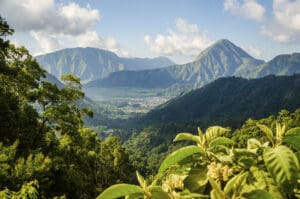WASHINGTON, DC (Jan. 11, 2022) – As the role played by Indigenous Peoples and local communities in safeguarding the planet gains long-due recognition by global climate and conservation initiatives, their representatives and allies have launched a new mechanism to finance locally-led efforts with full respect for the rights of Indigenous Peoples and local communities.
The Community Land Rights and Conservation Finance Initiative (CLARIFI), led by the Rights and Resources Initiative (RRI) and Campaign for Nature (C4N), will mobilize and strategically deploy public and private funds to scale up the legal recognition of Indigenous Peoples’, Afro-descendant Peoples’, and local communities’ rights, as well as their efforts to strengthen their conservation of natural resources, traditional livelihoods, and gender justice.
About 1.8 billion Indigenous Peoples, Afro-descendant Peoples, and local communities claim, inhabit and steward the earth’s most critical ecosystems, including its forests. Securing their rights and following their guidance is a powerful bottom-up opportunity to address the catastrophic threats facing the planet. For example, RRI estimates that 33% of the Earth’s tropical forest carbon is at risk without recognizing community rights to their lands. Securing these rights will avoid 1.1 to 7.4 GtC02e of emissions.
“CLARIFI fills a critical gap in the current ecosystem of funding for community rights and conservation and will transform the global climate finance architecture by channeling funds directly to Indigenous and community-led initiatives at scale, and also serving as a trusted fiduciary for national and regional-level funds established by locally-led organizations,” said Dr. Solange Bandiaky-Badji, Coordinator of RRI.
“Through targeted funding, coordination, and multi-level advocacy, it will enable and empower local peoples to expand the mapping and formal recognition of their lands, and to develop and implement their own management and conservation plans.”
CLARIFI’s design and implementation are guided by an Advisory Council of Indigenous and community rightsholders, from Asia, Africa and Latin America, along with partners from RRI and C4N. Concurrent with large-scale grants, it will also provide technical and organizational support. This capacity-building will be a key element of its approach to leverage existing local organizations that are effectively supporting collective tenure and governance across global ecosystems.
Brian O’Donnell, Director of Campaign for Nature said “Addressing the biodiversity and climate emergencies facing our planet requires the swift alignment of large conservation area targets and climate solutions with Indigenous and community rights and leadership. Indigenous Peoples’ lands contain the vast majority of the world’s biodiversity and critical global carbon sinks – Supporting their rights, conservation, and self-determined development is an essential, moral, and affordable solution for protecting nature and addressing the climate crisis. They have been exceptional stewards of the planet, and it is past time to support their rights and leadership.”
RRI and C4N estimate that at least $10 billion is required between now and 2030 to add a minimum of 400 million hectares to local communities and Indigenous and Afro-descendant Peoples’ legally recognized territories in order to help achieve the global goals of conserving at least 30% of the planet by 2030 and meeting global climate targets.
“CLARIFI addresses a need long felt by Indigenous and community organizations for a vehicle that mobilizes funding directly to them for activities not yet supported adequately by any donor,” said Pasang Dolma Sherpa, Executive Director of Nepal’s Center for Indigenous Peoples’ Research and Development (CIPRED) who serves on CLARIFI’s Steering Committee. “These include strengthening communities’ territorial governance and management, advancing gender justice, fighting criminalization and rollback of rights, and establishing an enabling legal environment for securing their rights.”
CLARIFI will complement other key funding mechanisms currently supporting community land tenure instigated by RRI. The first is the Tenure Facility, which provides large grants to secure tenure rights in countries where there is already an enabling legal framework. The second is RRI’s Strategic Response Mechanism, designed to fund timely advocacy, capacity building, and convening opportunities in a wide range of low to middle income countries. CLARIFI will regrant funds to advance justice, climate, conservation, and development goals in a wide range of lower to middle-income countries in the world. It aims to deploy grants of $100,000 to $1 million as well as supporting rightsholders’ organizations as a pass-through financial mechanism for larger grants between $5-$50 million.
Gustavo Sánchez Valle, President of the Mexican Network of Forest Peasant Organizations (Mocaf Network) and member of CLARIFI’s steering committee said, “CLARIFI will also support and create synergies with national and regional territorial funds led and governed by rights-holders, financing a diverse range of efforts to secure communities’ tenure and rights to the resources in their territories.”
“Our goal is to encourage investment in community-led structures for the governance of local territories, particularly for conservation, restoration, monitoring and supporting Indigenous and community economy programs. This won’t replace the role played by governments; but it will promote initiatives that have strategic value and have the potential to be replicated or become public policy.”
Importantly, CLARIFI will be a flexible mechanism, able to operate in various developmental and political contexts with many types of organizations to support a broad range of activities.
“For too long Indigenous Peoples and local communities have received shockingly little climate funding to advance their sustainable conservation practices, traditional livelihoods, and management of endangered landscapes,” said Stanley Kimaren ole Riamit, Founder-Director of Kenya’s Indigenous Livelihoods Enhancement Partners (ILEPA) and member of the Steering Committee. “We are excited to start the new year with the hope and promise CLARIFI brings – and channel long overdue recognition and resources directly to the Earth’s most effective stewards.”








